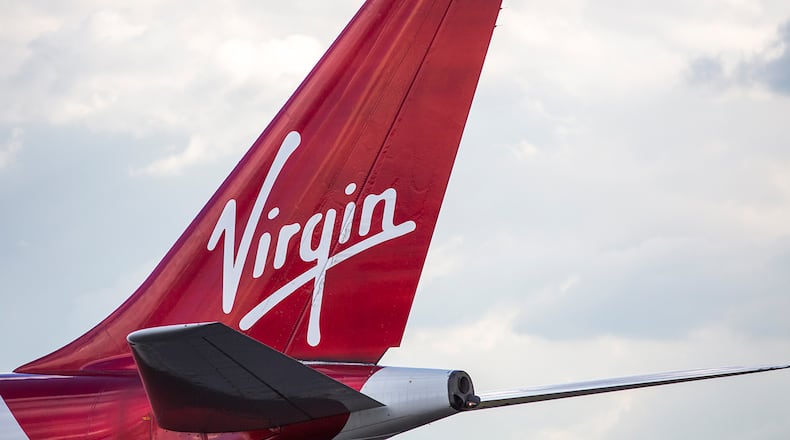Virgin Atlantic faces a $1 million fine from the U.S. government for flying through Iraqi airspace when that was prohibited by the Federal Aviation Administration because of heightened fears of conflict.
The U.S. Department of Transportation said Virgin Atlantic, a code-share partner of Atlanta-based Delta Air Lines, operated “a significant number of flights” that carried the Delta code between the U.K. and India over restricted airspace in Iraq between Sept. 16, 2020 and Sept. 16, 2021.
The FAA notified pilots in March 2020 of a prohibition on flights in the Baghdad area at all altitudes due to “heightened militia activities and increased tensions in Iraq.” The notification came in the form of a Notice to Air Missions, which is also the FAA system that had an outage causing thousands of flight delays last week.
The prohibition via NOTAM remained in place until Oct. 22, 2021. A separate prohibition on flying in Baghdad airspace remains in effect below a certain altitude, and lasts until Oct. 26, 2024, because of “continuing hazards” in the area.
Virgin Atlantic is subject to the U.S. restrictions and penalties because the flights were part of a partnership with Delta.
The British carrier is part of a joint venture with Delta, Air France and KLM, one of a number of foreign partnerships Delta relies on to connect passengers to destinations around the globe.
The U.S. Department of Transportation said Virgin Atlantic should have avoided airspace restricted by the FAA when operating flights that have Delta’s “DL” code on it. Codeshares allow a Delta passenger, for example, to easily book an itinerary from Atlanta to London, to connect to a Virgin Atlantic flight to destinations in Europe or beyond.
While the DOT is levying a $1.05 million fine against Virgin Atlantic, $525,000 of it can be mitigated if the airline makes its payments when due and does not violate a cease-and-desist provision.
Virgin Atlantic said it corrected its routings as soon as it was notified of the issue by the DOT. It pointed blame at “operational disruptions and loss of personnel due to the COVID-19 pandemic” for the inadvertent overflights, according to a consent order.
“We have thoroughly reviewed and strengthened our systems and processes,” Virgin Atlantic said in a written statement.
The carrier called overflight limitations by different authorities “complex and dynamic.” Although the FAA at the time did not allow U.S. airlines and carriers operating with the code of a U.S. carrier to fly over the Baghdad region at any altitude, the U.K. and other foreign governments did allow flights through Iraqi airspace at high altitudes, according to Virgin Atlantic.
Virgin Atlantic said it has also started using a new automation system for alerts of regulatory restrictions affecting flights.
About the Author
The Latest
Featured



